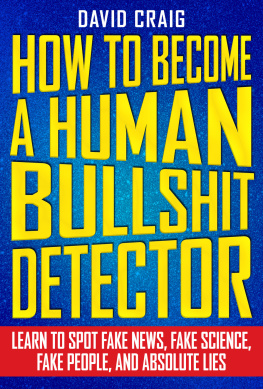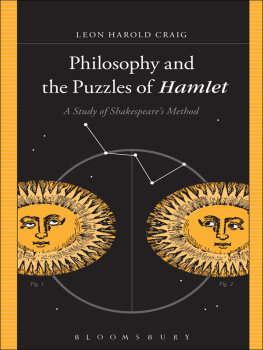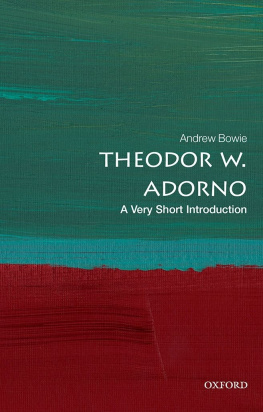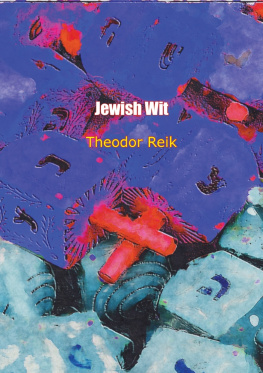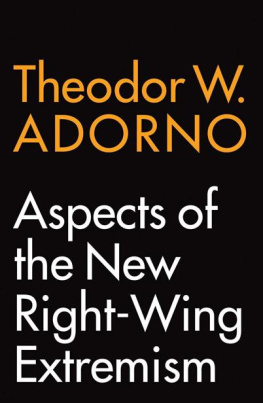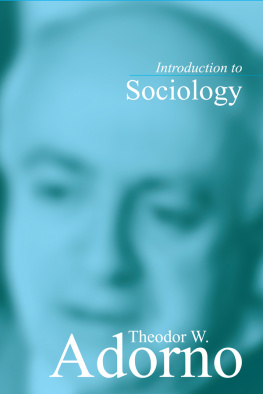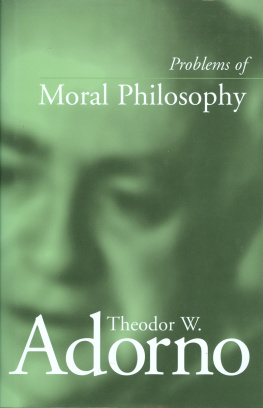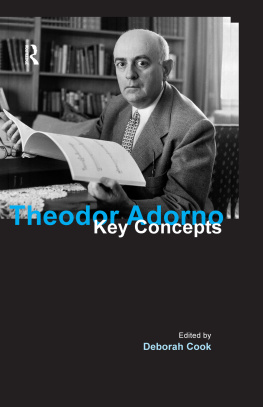Craig - Theodor Fontane
Here you can read online Craig - Theodor Fontane full text of the book (entire story) in english for free. Download pdf and epub, get meaning, cover and reviews about this ebook. year: 1997, publisher: Oxford University Press, Incorporated, genre: Art. Description of the work, (preface) as well as reviews are available. Best literature library LitArk.com created for fans of good reading and offers a wide selection of genres:
Romance novel
Science fiction
Adventure
Detective
Science
History
Home and family
Prose
Art
Politics
Computer
Non-fiction
Religion
Business
Children
Humor
Choose a favorite category and find really read worthwhile books. Enjoy immersion in the world of imagination, feel the emotions of the characters or learn something new for yourself, make an fascinating discovery.
Theodor Fontane: summary, description and annotation
We offer to read an annotation, description, summary or preface (depends on what the author of the book "Theodor Fontane" wrote himself). If you haven't found the necessary information about the book — write in the comments, we will try to find it.
Theodor Fontane — read online for free the complete book (whole text) full work
Below is the text of the book, divided by pages. System saving the place of the last page read, allows you to conveniently read the book "Theodor Fontane" online for free, without having to search again every time where you left off. Put a bookmark, and you can go to the page where you finished reading at any time.
Font size:
Interval:
Bookmark:

THEODOR FONTANE
Literature and History in the Bismarck Reich
Gordon A. Craig
New York Oxford
Oxford University Press
1999
Oxford University Press
OxfordNew York
Athens Auckland Bangkok Bogota Buenos Aires Calcutta
Cape Town Chennai Dar es Salaam Delhi Florence Hong Kong Istanbul
Karachi Kuala Lumpur Madrid Melbourne Mexico City Mumbai
Nairobi Paris So Paulo Singapore Taipei Tokyo Toronto Warsaw
and associated companies in
Berlin Ibadan
Copyright 1997 by C. H. Becksche Verlagsbuchhandlung, Mnchen Originally published in German under the title ber Fontane by C. H. Becksche Verlagsbuchhandlung, Mnchen 1997
English edition copyright 1999 by Oxford University Press, Inc.
Published by Oxford University Press, Inc. 198 Madison Avenue, New York, New York 10016
Oxford is a registered trademark of Oxford University Press
All rights reserved. No part of this publication may be reproduced, stored in a retrieval system, or transmitted, in any form or by any means, electronic, mechanical, photocopying, recording, or otherwise, without the prior permission of Oxford University Press.
Library of Congress Cataloging-in-Publication Data Craig, Gordon Alexander, 1913 [ber Fontane. English]
Theodor Fontane : literature and history in the Bismarck Reich / Gordon A. Craig.
p. cm.
Includes bibliographical references and index.
ISBN 0-19-512837-0
1. Fontane, Theodor, 18191898. 2. Authors, German19th
centuryBiography. 3. GermanyHistory19th century.
4. Prussia (Germany)History17891900. I. Title.
PT1863.F66 C7313 1999
833'.8dc21
[B] 98-47520
To the memory of
Daniel Marcus Davin Arthur Spring-Rice Pyper Jerome Blum
In midst of all inconsequential things,
I find myself remembering other springs.
In his remarkable series of essays The Spirit of the Age, William Hazlitt wrote:
A really great and original writer is like nobody but himself. In one sense, Sterne was not a wit, nor Shakespear a poet. It is easy to describe second-rate talents, because they fall into a class and enlist under a standard; but first-rate powers defy calculation or comparison and can be defined only by themselves. They are sui generis and make the class to which they belong. I have tried half-a-dozen times to describe [Edmund] Burkes style without ever succeeding: its severe extravagance, its literal boldness, its matter-of-fact hyperbole, its running away with a subject and from it at the same time, but there is no making it out, and no example of the same thing anywhere else. We have no common measure to refer to, and his qualities contradict even themselves.
These words are worth bearing in mind when we think of Theodor Fontane. There are nineteenth-century German writers whom we would rank higher: Goethe certainly, who had the ability to do everything anyone else did just a little bit better; and Heine, who had no equal as a prose writer and whose satirical gifts recall those of Juvenal; and any number of lyricists whose talents were truer and fuller than Fontanes. Even so, the products of Fontanes pen were so original and so diverse that their authors stature is as undeniable as his defiance of classification. There is no one like him. No writer in his time had a range as great as his, including as it did political journalism of the highest quality, ballads, songs, historical poems and vers doccasion, a unique kind of travel literature, military history and historical essays on Prussian, English and Scottish history, extensive writings on the theater, novels that have been described as the most completely achieved of any written between Goethe and Thomas Mann, and a volume of correspondence that marks him as one of the most entertaining letter writers in German literature.
Nor does such a listing of categories succeed in giving a true sense of the uniqueness of his work. Anyone who picks up a volume of The War against France or Wanderings through the Mark Brandenburg with the expectation that it will conform to conventional nineteenth-century military or travel literature will be happily surprised, in the former case by the clarity and essentially literary quality of the style, which makes technical detail and complicated maneuvers comprehensible to the general reader, by the masterful description of the historical and political context and of the terrain in which the hostilities take place, by Fontanes eye for the critical turning points in battle and his dramatic re-creation of individual passages of arms, by his freedom from narrow national partisanship, andabove allby his insistence upon entering into the minds and attitudes of the soldiers on the other side of the hill. It is these qualities that have assured the survival of his military histories, while the professional studies of the time, written by people who refused to believe that a mere civilian was capable of writing about their mtier, have long since sunk into oblivion. Similarly, one can say of the Wanderings that there is no example of the same thing anywhere elsea kind of travel literature that enchants the reader with its mixture of description, history, and anecdote, that is studded with brilliant set pieces, like the story of the execution of Katte, the friend of Frederick IIs youth, at Kstrin, and that is written in a style that varies between the circumstantial and the playful, Sachlichkeit consorting easily with Plauderei.
In his splendid biography, Hans-Heinrich Reuter has written that Fontanes greatest gifts were his power of acute observation, his crit More will be said of all these qualities in the chapters that follow, butsince the author of these pages is himself a historianthe emphasis will fall upon the third, Fontanes affinity for history, which he came to naturally and which was his strongest passion.
At this point, I should confess that the genesis of my own admiration of Fontane was very belated and that, to the best of my recollection, I had neither heard his name nor read a page of his work until 1938, when I was twenty-five years old. This still seems a bit odd to me, for during my training in history at the university I had a strong interest in German literature, and I can only attribute it to the fact that, in American universities in the 1930s, departments of German literature did not pay much attention to the nineteenth-century novel. Beyond the Laokoon and the Hamburgische Dramaturgie, and the writings of the Weimar dioscuri, and the Romantics, a great wasteland extended in which Schopenhauer and Wagner and Nietzsche were rumored to dwell but which was apparently forbidden territory for novelists, who had to go to Russia or France or Great Britain in order to ply their trade. It was not until I came back to Princeton from Oxford as a graduate student in history that I discovered that this view was exaggerated. At that time, my Doktorvater Raymond James Sontag gave me a book by Ernst Kohn-Bramstedt, and I heard for the first time the names of Gustav Freytag, Friedrich Spielhagen, Wilhelm Raabe, and Theodor Fontane.
Kohn-Bramstedt was a confirmed believer in the importance of the novel of society as a historical source, a belief that he emphasized at the outset:
To what extent can one rely on literature in depicting society? What likelihood is there that the social novel will help to a better understanding of society? By means of particular instances and sequences of events it can portray the specific character of social situations or of social types and illustrate even the smallest features of everyday life. Today a serious social novel implies just as exact an empirical knowledge of its subject as does a scientific sociological analysis.
Font size:
Interval:
Bookmark:
Similar books «Theodor Fontane»
Look at similar books to Theodor Fontane. We have selected literature similar in name and meaning in the hope of providing readers with more options to find new, interesting, not yet read works.
Discussion, reviews of the book Theodor Fontane and just readers' own opinions. Leave your comments, write what you think about the work, its meaning or the main characters. Specify what exactly you liked and what you didn't like, and why you think so.


